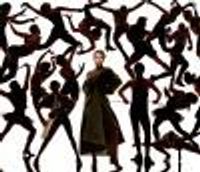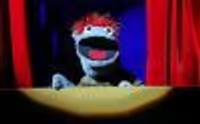Which is more important in a musical- acting or singing?
FlowerChild67
Stand-by Joined: 7/11/12
#1Which is more important in a musical- acting or singing?
Posted: 7/18/13 at 6:20amMight seem like a stupid, bordering on trollish question, but I've seen this discussion pop up several times recently online. So, which is more important for you? Would you rather watch someone with a beautiful voice, or who can't sing but is a wonderful actor?
#2Which is more important in a musical- acting or singing?
Posted: 7/18/13 at 6:58am
I think it depends on the show. But often both are important.
For example, in Chicago, I don't think you need to be an amazing singer, but the acting is important; however, for a show like Phantom of the Opera, you'll want to have actors with great voices.
After Eight
Broadway Legend Joined: 6/5/09
#2Which is more important in a musical- acting or singing?
Posted: 7/18/13 at 7:02am
It depends on the role.
Rex Harrison was brilliant in My Fair Lady. I wouldn't have wanted to see him try Man of La Mancha or Carousel.
Lauren Bacall was great in Applause, as was Vivien Leigh in Tovarich. I wouldn't have wanted to see either as Eliza Doolittle.
Dave19
Broadway Legend Joined: 12/23/11
#3Which is more important in a musical- acting or singing?
Posted: 7/18/13 at 7:14am
Singing is acting.
I think the greatest singers of all time are acting through song. For example, Whitney Houston in her younger years, the way she sang "home", every word comes from her soul, like she means it, yet every word is sung perfectly. The audience can feel 3 different emotions in 1 sentence, because of the placements of the notes and the storytelling that comes from the heart. The right intention on the right note, which provokes the right emotion. That is acting. I think a lot of people underestimate the finesse of singing, how the rising of a note, the placement of a syllable, the beginning, middle or end of a single word can make your spirit lift, make you laugh or cry. Only if a person masters this craft so well, there is a point in singing in the first place.
Unfortunately this talent is very rare. I can only name a handful of people in the world that were able to act through song this way. Whitney Houston, Karen Carpenter and Lea Salonga. Maybe Julie Andrews too. What these lady's have in common is that their singing is an extension of speech. It feels completely truthful. And every syllable and slightest vibration hits the nail on the head in terms of emotion and story for the listener.
Now, this can only be achieved when the singing is perfect and feels real, truthful and is like an extension of speech.
Unfortunately almost every singer/actor nowadays does it wrongly, one way or the other.
There are trained singers who do everything on technique. Notes feel like an acquired/learnt trick. This is the feeling I have with many musical theatre singers nowadays. There is nothing truthful about it, and therefore there is no acting. Every face or emotion feels fake. Often this comes across as annoying, especially as they are doing it and still try to act around it (Ramin Karimloo). The result is something hysterical, but nothing that can be called acting. John Owen Jones does a much better job at acting because of/through the singing.
Then there are many, many people who just simply do not master the craft of singing notes well enough, yet still want to sing songs, and therefore "act the song". This is even worse and feels embarrassing. These are the people that cry, scream, speak, their way through a song. I would not call this "acting" either. Because all I see is a person struggling with the singing which is just distracting. Then don't sing. The aucience hears every failed note and singing inability will not be covered up by whatever faked emotion. Nowadays it seems to be "hip" to "fake act" and "sing uglier" to get your point across. While true acting through song comes from other things.
Either way, both of these problems are "faked rawness" in my opinion. It only feels real/raw if both of things are there naturally. Not covering one up with the other.
Updated On: 7/18/13 at 07:14 AM
#4Which is more important in a musical- acting or singing?
Posted: 7/18/13 at 7:15am
Well, it would really depend on the musical itself, wouldn't it? With the grander shows that verge on opera like Phantom, I would say that singing mostly outweighs the acting as top priority. The audience will forgive a Christine of flimsy acting abilities if she has the voice of an angel. And that's even if her bad acting can be noticed under the glitz and grandeur of both the set and score.
Then there's a character like The Baker's Wife in Into the Woods. Here you definitely need an actress above all else. Yes she still needs to be pleasant to listen to as with any other musical character. This is, of course, excluding character parts that are meant to be poor singers. An example here would be the role of Sally Bowles in Cabaret. A role where acting ability must come first. And where many here would agree that the character should actually NOT have a nice singing voice.
Then you have roles like Diana in Next to Normal that absolutely need to be strong in both regards. So you see, it's not a black and white / yes or no question. I personally prefer musicals where strong acting abilities are required. They suck me into the story and have me caring much more about the characters. But that's just me. There are many here, I'm sure, that like going to musicals to hear beautiful singing above all else and that's their preference. And that's why there is such a wide range of musicals out there.
Hope that answers your question.
#5Which is more important in a musical- acting or singing?
Posted: 7/18/13 at 7:22am
It's all about the match of role to performer.
As others have pointed out, certain roles are written for singers with limited capabilities. Those roles rely heavily on acting or the personality of the original performer (Harrison, Channing, Mostel).
To me, it was (and is) fascinating to hear some of these roles sung by singers. To have Streisand sing the songs written for Channing in Hello, Dolly! present them in a whole new light. They work either way. Dolly can be performed by a great singer or a character singer with limited abilities ... as long as the personality is there, which is the most important ingredient for that character.
But there are singing (or dancing) roles that I wouldn't want to see performed by "good actors who can't sing well." Most of the R&H roles come to mind. I don't care how brilliant an actor you are, if you can't sing Billy Bigelow or Curly or Maria or Anna, you shouldn't be playing the part. One of their biggest exceptions is the King in the King & I. He doesn't need to be a strong singer.
Sondheim has said he prefers actors who sing, over singers who act. He loves writing for a Glynnis Johns or Zero Mostel more than he does a trained singer. Because their limitations help define the character. How they phrase their sentences and words. How they communicate. He wrote Send In the Clowns with purposely clipped words at the ends of the phrases, because Glynnis wasn't much of a singer and couldn't hold long notes. I love that.
blocked: logan2, Diamonds3, Hamilton22
Dave19
Broadway Legend Joined: 12/23/11
#6Which is more important in a musical- acting or singing?
Posted: 7/18/13 at 7:33am
"The audience will forgive a Christine of flimsy acting abilities if she has the voice of an angel"
If she sings the part perfectly, and makes the audience feel the right emotions with the right intentions, placements and rising of the notes that are believable then that IS acting.
If she is too trained and it feels just like a technique, only then it can feel like the acting is bad, like she does not mean it. Or if the singing is not good enhough, and she tries to cover it up with acting, then we see a struggling actress.
"Sondheim has said he prefers actors who sing, over singers who act. He wrote Send In the Clowns with purposely clipped words at the ends of the phrases, because Glynnis wasn't much of a singer and couldn't hold long notes. I love that."
I wonder why he does not prefer people who have both and actually act through song. Audiences are not crazy. They hear every inability and failed note. They might forgive an actor for his inability to sing, but it never lifts a performance to the level it could have been.
Updated On: 7/18/13 at 07:33 AM
#7Which is more important in a musical- acting or singing?
Posted: 7/18/13 at 8:00am
But the point that was made is that Sondheim often wrote for non-singers in a way that masked their vocal limitations. The audience won't hear a failed note during Send in the Clowns because the song is written in such a way that it's very hard to sing badly unless you actually cannot sing.
I agree with most of the responses here- it's all about the role.
Dave19
Broadway Legend Joined: 12/23/11
#8Which is more important in a musical- acting or singing?
Posted: 7/18/13 at 8:11am
I see what you mean, but I could still tell the person is not a singer and be distracted by it, and wonder why that person is "singing" in the first place. I never believe their story if I feel the slightest bit of struggling with singing.
#9Which is more important in a musical- acting or singing?
Posted: 7/18/13 at 8:25am
I"m often distracted in musicals by singers who have TOO much technique. If the phrasing is flawless, the notes perfect, the tone round and full, it can pull the focus away from the character and the story presented. It becomes "generic good singing." The voice overshadows the material, rather than serves it.
Boring.
In musicals, acting first. Singing is great as long as it doesn't upstage everything else. If it does, then you're doing it wrong.
Perfect singing is almost as distracting as bad singing in a musical.
Very few singers have been able to do both equally well. There's Garland and Streisand, and ... I think I'm done.
Even someone like Barbara Cook, who has a gorgeous voice, isn't flawless. Her acting of a song always takes priority over "flawless" singing. That's why she's one of my favorite Broadway sopranos ever. Julie Andrews, too. The number one goal is communication, not "pretty singing."
EDIT: A good example of "distracting good singing" was Audra McDonald in Ragtime. Her voice was too good for the role. I didn't believe her has Sarah for one minute. LaChanze, on the other hand, broke my heart when I saw her play the part 4 times. She WAS Sarah. Audra was "flawless" as Sarah. Totally wrong.
blocked: logan2, Diamonds3, Hamilton22
Dave19
Broadway Legend Joined: 12/23/11
#10Which is more important in a musical- acting or singing?
Posted: 7/18/13 at 8:36am
Best12bars, that's my point.
There are 2 things in musical singing that make a bad acting performance, 1. Too well trained, so it sounds like a trick, and 2. No natural singing ability and therefore only "act" a song, which makes ot totally unbelievable too, because then why are they singing.
I think Barbra Streisand actually does it both quite wrong, the singing often sounds too rehearsed and the acting feels forced.
The only singers that perfectly act through song I can think of are Whitney Houston, Karen Carpenter and Lea Salonga.
And by perfect I do not mean the flawless singing, I mean the truthfulness and therefore "communication". When there is nothing that distracts.
"Her acting of a song always takes priority over "flawless" singing"
One thing should not take priority over the other. It's the "flawless" singing that pushes all the right buttons for a great acting result. Flawless means not being distracted by things. If someone sings too trained that is flawed too.
Updated On: 7/18/13 at 08:36 AM
rorschach37
Broadway Star Joined: 4/3/10
#11Which is more important in a musical- acting or singing?
Posted: 7/18/13 at 9:25amI personally beleive acting should come first. For example, I LOVED Harvey Fierstein as Albin in La Cage. Everyone here knows Harvey isn't the best vocalist, but his "I Am What I Am" brought tears to my eyes simply because of his superb acting. He WAS Albin.
#12Which is more important in a musical- acting or singing?
Posted: 7/18/13 at 9:35am
LIZA
LIZA
#13Which is more important in a musical- acting or singing?
Posted: 7/18/13 at 9:43amI'm with best12bars; far too many theatre singers focus primarily on the voice, and the lyrics are meaningless.
#14Which is more important in a musical- acting or singing?
Posted: 7/18/13 at 9:54am
Everything to do with a musical theatre piece should serve to tell the story, whether it's the acting, singing, costumes, dancing, music, lyrics, book, direction, lighting, sets, orchestrations, etc.
If they don't serve to enhance, shape, or advance the story, even if they are "outstanding" in and of themselves, they are doing it wrong.
And Dave19, my thoughts on Streisand's abilities had to do with her early days in musical theatre and film musicals. Nothing recent, I'm sorry to say. Her strive for perfection (or growing fear of falling short?) has made her way to "safe" in both her acting and singing choices. Plus, you know, age. But her "safe choices" is what grounded her long ago.
EDIT: And by the same token, Judy Garland's own demons got the best of her in later years as a performer.
But in their primes, Garland and Streisand managed to sing like complete angels and act as well as any non-singing actor ever has.
blocked: logan2, Diamonds3, Hamilton22
#15Which is more important in a musical- acting or singing?
Posted: 7/18/13 at 10:06am
I think acting is what separates musical theater from a musical revue. I can forgive a lesser voice if there is heart in the song. Patti LuPone has always professed to be an actor who sings. Her voice is strong but her voice alone isn't what made her turn in Evita legendary. You have to have equal talent as an actor to use your voice to convey the meaning of the song.
One of the things that is wrong with current musical theater performers is that too many are voice first, acting second. And that's just not appealing.
Updated On: 7/18/13 at 10:06 AM
#16Which is more important in a musical- acting or singing?
Posted: 7/18/13 at 10:21amYeah...I mean...I love Whitney and Karen and Lea, but to say they're the only people who act through song while Judy Garland, perhaps the greatest singing actress of the last century, is not on the list is...odd.
#17Which is more important in a musical- acting or singing?
Posted: 7/18/13 at 10:26amThe real question is how can certain non-singers--like Rex Harrison, Yul Brynner, Glynis Johns--sound so musical when they sing that people laugh, cry and cheer, yet when I open up my mouth and try to sing, dogs howl and babies cry?
#18Which is more important in a musical- acting or singing?
Posted: 7/18/13 at 10:32am
LOL
I think you can be "musical" (no that's not a gay euphemism from "The Women") without having a good singing voice.
Timing, phrasing, a strong sense of pitch, and understanding how to sing and act at the same time (don't ask Russell Crowe) are the key ingredients for Harrison, Johns, Brynner, Fierstein, etc.
They all have solid musicianship when they approach a song even if they don't have the pipes.
blocked: logan2, Diamonds3, Hamilton22
#19Which is more important in a musical- acting or singing?
Posted: 7/18/13 at 10:35amI would never, ever want to hear a polished, technical singer take on the role of Henry Higgins in MY FAIR LADY or The King in THE KING AND I. They would suck all the character out of the role.
Dave19
Broadway Legend Joined: 12/23/11
#20Which is more important in a musical- acting or singing?
Posted: 7/18/13 at 10:48am
"The real question is how can certain non-singers--like Rex Harrison, Yul Brynner, Glynis Johns--sound so musical when they sing that people laugh, cry and cheer"
Because they might be great actors. Their acting is so good that the bad singing does not harm their performance. But the real question is, wouldn't it be even better if great acting was combined with great singing?
Dave19
Broadway Legend Joined: 12/23/11
#21Which is more important in a musical- acting or singing?
Posted: 7/18/13 at 10:55am
"and understanding how to sing and act at the same time (don't ask Russell Crowe"
Good singers are good actors.
And by "good" I don't mean technically perfect, but a perfect combination of living and meaning the words they sing. Make it completely believable because the singing is so natural for the person.
Hugh Jackman only got this right at 2 moments in the film, Valjean's soliloquy and the Finale. In the rest of the film he failed miserably and was unable to combine the "singing" with the acting.
Updated On: 7/18/13 at 10:55 AM
#22Which is more important in a musical- acting or singing?
Posted: 7/18/13 at 11:00am
We have different opinions about Hugh. I think he can sing and act simultaneously very well. I just don't like his singing voice most of the time. It's too nasal and strident, and usually at the wrong moments (like quiet, tender moments). He has an impressive upper register though.
But I thought he acted the role of Valjean very well.
blocked: logan2, Diamonds3, Hamilton22
Dave19
Broadway Legend Joined: 12/23/11
#23Which is more important in a musical- acting or singing?
Posted: 7/18/13 at 11:01am
"I would never, ever want to hear a polished, technical singer take on the role of Henry Higgins in MY FAIR LADY or The King in THE KING AND I. They would suck all the character out of the role."
If done right, it would add an extraordinary quality to the performance. Unfortunately only a few performers have this quality.
What you describe is not great singing, that's technically perfect, but emotionless singing and therefore flawed. My point is that a great actor with a mediocre singing voice can be quite good, but a great actor with an incredible singing voice (being able to act through great singing) is even better.
One thing does not have to exclude the other.
Dave19
Broadway Legend Joined: 12/23/11
#24Which is more important in a musical- acting or singing?
Posted: 7/18/13 at 11:06am
"But I thought he acted the role of Valjean very well."
Did you not feel like the singing got in the way of the acting for him? I felt like that. Like he was making strange choices all the time, switching back and forth between singing and acting mode. Also strange choices in holding the wrong syllables for too long etc. To me it felt anything but natural.
Videos









